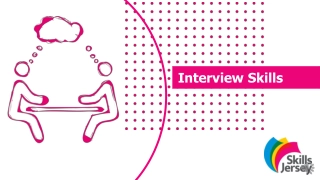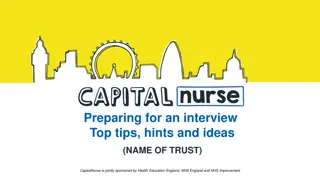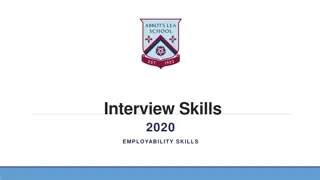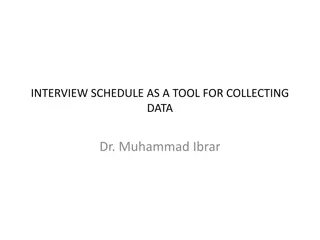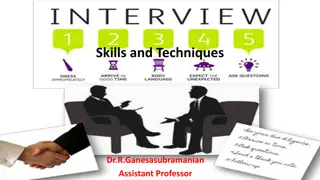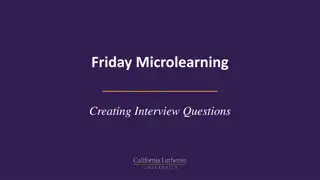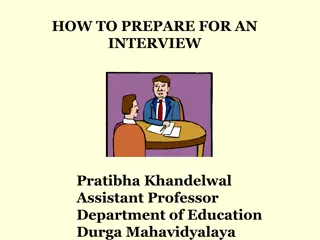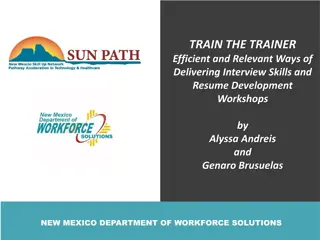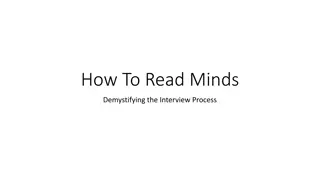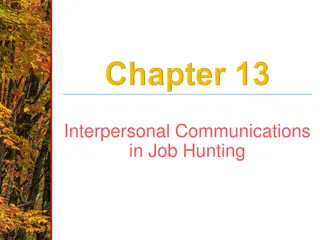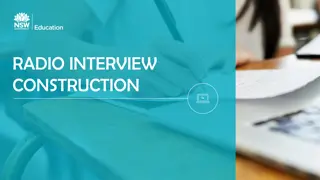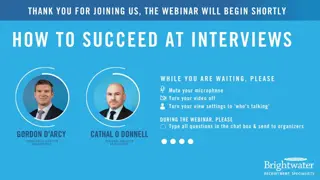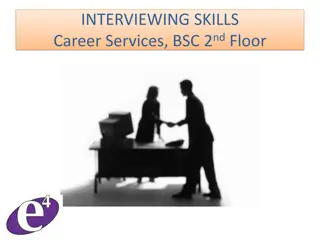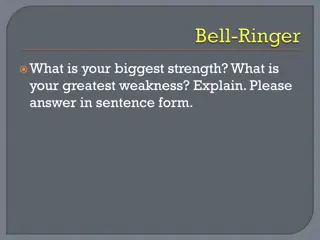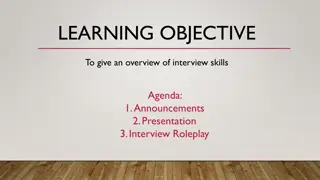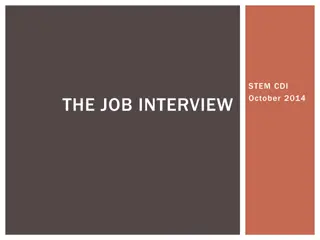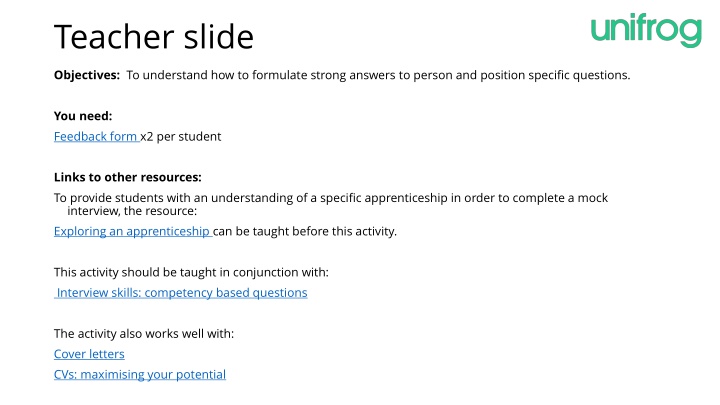
Mastering Position Specific Interview Questions for Success
Learn how to excel in job interviews by mastering position specific questions. Understand the structure of interviews, craft strong answers, and receive valuable feedback with this comprehensive resource.
Download Presentation

Please find below an Image/Link to download the presentation.
The content on the website is provided AS IS for your information and personal use only. It may not be sold, licensed, or shared on other websites without obtaining consent from the author. If you encounter any issues during the download, it is possible that the publisher has removed the file from their server.
You are allowed to download the files provided on this website for personal or commercial use, subject to the condition that they are used lawfully. All files are the property of their respective owners.
The content on the website is provided AS IS for your information and personal use only. It may not be sold, licensed, or shared on other websites without obtaining consent from the author.
E N D
Presentation Transcript
Teacher slide Objectives: To understand how to formulate strong answers to person and position specific questions. You need: Feedback form x2 per student Links to other resources: To provide students with an understanding of a specific apprenticeship in order to complete a mock interview, the resource: Exploring an apprenticeship can be taught before this activity. This activity should be taught in conjunction with: Interview skills: competency based questions The activity also works well with: Cover letters CVs: maximising your potential
Unifrog resources Interview Skills: Position Specific Questions
Interview Skills Consider any experience you have of interviews, and in groups discuss using PNI. Positive Negative Interesting
Interview Skills Interviews often involve a 4 part structure. 1. Before the interview This is when you should research the organization / university / course. 2. The start of the interview This involves greeting the interviewers and can include general questions about you, your interest in the position and knowledge of the organization / university / course. 3. The middle of the interview Questions are often divided into two categories: position specific questions and competency based questions. 4. The end of the interview This is your opportunity to ask questions to the interviewer. Please note that not all interviews will follow this structure. It is meant as a guide only.
Interview Skills Today, we will focus on the position specific questions and questions about yourself. These types of questions will vary depending on the position, however they will often use a similar structure. See examples of person specific questions below - - - - - - Tell me a little about yourself. How would your friends describe you? What skills do you have that are suited to this job? What are your weaknesses / areas for development? What do you know about this company / organisation Why did you chose to apply to this company / organisation? Discuss any experience you have of answering these questions. What did you say? Did it go well? How would you have improved your answers?
Tell me about yourself: top tips - Keep your answer succinct; 2-3 minutes is a good amount of time to answer this question. - Stay on topic: include information relevant to the position. - Possible topics include your education, your interest in the field, work history and other relevant experience. - Connect this experience with the position. - Choose 3-5key points to stay on track. Practice so that you are fully prepared. - Use facts from your CV (always read your CV before an interview). - Only include positive statements and successes.
What are your weaknesses? Top tips - Everyone has areas for development, so be honest, but prepare your answer and consider the impact of your answer of the interviewer. - Avoid clich d answers such as I m a perfectionist . - Explain your weakness and then, without prompting, give practical examples of how you are addressing them. End on a positive note. I used to find it difficult to work on simultaneous projects, preferring to finish on one task before starting another. However, to overcome this difficulty, I now use a monthly planner and plan my work time in advance, ensuring I give adequate time to each project . - Consider what area of development you will discuss prior to the interview. Keep in mind the essential skills for the particular job and the impact on the interviewer if you chose one of these skills as your area of development.
Final top tips - How would your friends describe you? -Remain professional -Emphasise skills needed for the position, for example a good listener . -What skills do you have that are suited to this job? -Explain the skill you have and then provide concrete examples without prompting. Use the Unifrog competencies tool to practice formulating a structured answer. -What do you know about this company/organisation? -Use up to date research and try to go beyond information on the company website; look for links to articles/news reports. -Why did you chose to apply to this company/organisation? -Link this answer to progression in the company.
Instructions: activity 1 Using the top tips discussed, prepare answers to the following questions. -Tell me a little about yourself. -What are your weaknesses/areas for development? -How would your friends describe you? It is a good idea to have an idea of the industry you will be applying for a job in for this activity; you can therefore make your answers specific to that industry. Use the Unifrog Apprenticeships search and filter tool to research Apprenticeships if needed.
Instructions: activity 2 1. Work in pairs and role play asking and answering your prepared person specific responses. 2. When the first person has completed their answers, fill in the feedback forms (one as self reflection and one as interviewer feedback). 3. Compare your feedback forms and discuss any discrepancies in responses and possible reasons for those discrepancies. 4. Repeat the process for the second person.
Sign in at: unifrog.org/student

